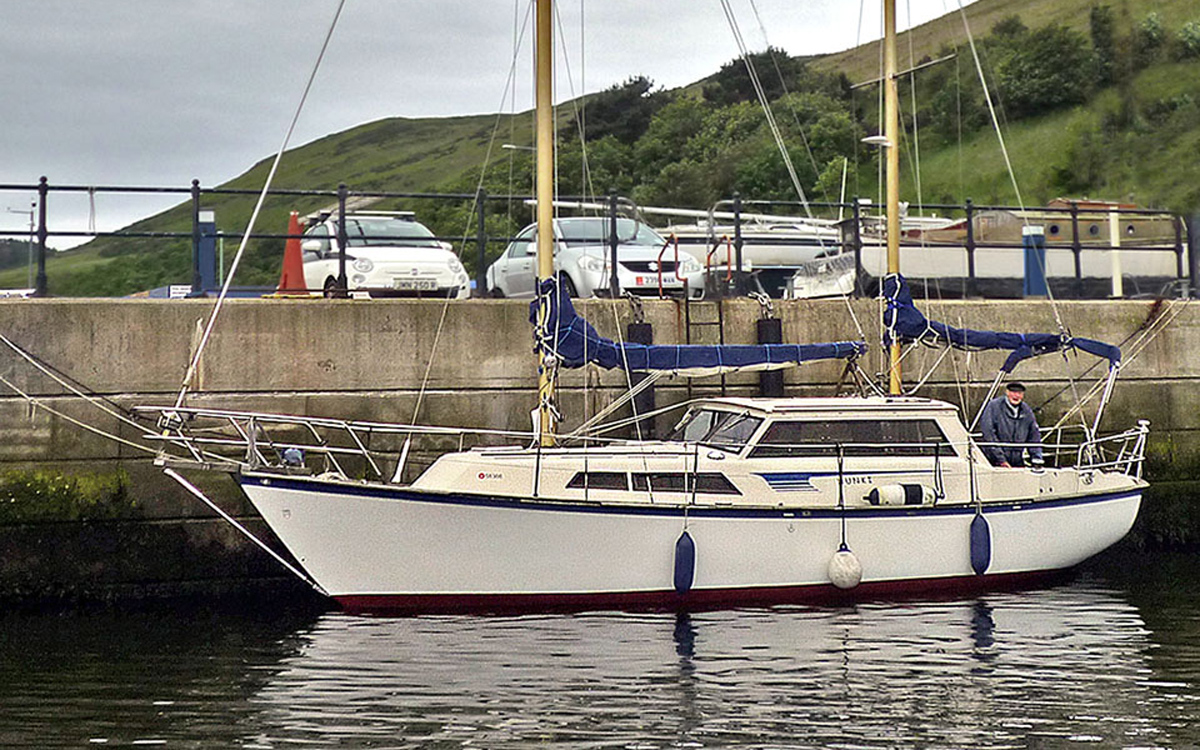Experts and boat owners are growing increasingly concerned that the new E10 fuel will damage and affect engines over 15 years old.
Fears are that older boat petrol engines – both outboard and inboard – filled with E10 could be caught out in a dangerous situation.
In September 2021, the UK government mandated the introduction of the use of E10 petrol. ‘E10’ refers to the percentage of ethanol mixed into the petrol.
The UK’s previous baseline fuel mix was E5 with 5% ethanol.
Diesel fuel is not affected, although lower sulphur and higher biofuel content in recent years has seen an increase in the risk of diesel bug.
Claims that E10 petrol will see carbon dioxide (CO2) production cut by as much as 750,000 tonnes annually are made but there are downsides.
Firstly, ethanol absorbs water. If your vehicle or boat is left unused for a while, the fuel’s water content could rise, causing corrosion in the fuel system, poor starting and performance.
Secondly, ethanol is a solvent and can slowly eat through some rubbers, plastic and some fibreglass; affecting older boats engines in particular; causing rubber seals and hoses to perish and eventually leak.
Thirdly, ethanol is 34% less energy-dense than petrol, affecting fuel consumption.

Engine expert Stu Davies
PBO engines expert Stu Davies said: “I think that we should be shouting this information from the rooftops.
“Filling up with E10 and then finding that your engine quits in a dangerous situation is a bit different from your garden strimmer quitting or your car coming to a halt.”
Respected older car clubs and Haynes Manuals have echoed concerns articulated by PBO reader Peter Nichols (PBO, April 2021), that older engines are not going to be able to cope without some modifications or adjustments to which fuels we use.
Article continues below…
Managing E5 and E10 petrol problems
E5 and especially E10 petrol requires much more ‘fuel husbandry’ than older, ethanol-free petrol blends, as Jake Frith has discovered
How to remove a marine diesel cylinder head step by step
During the summer of the 2019 our Bavaria 39 Tessa Jane began producing black exhaust smoke and suffering a reduction…
Cloudy diesel: What is making my fuel turn more orange than usual?
The red diesel in the bowl of my primary filter looks cloudy and has a more orange colour than normal.…
Common rail diesel engines explained: Should I install one on my boat?
Common rail diesel engines have been used in boats and trains since the 1940s, and were given more development for…
Stu added: “More and more problems have come to our attention from the addition of 5% ethanol over the last few years, most noticeably with the absorption of water by the ethanol in our outboard tanks and carburettor float bowls.
“Left over the winter this can be a recipe for disaster with the water forming a wallpaper paste type of goo in the float bowls and/ or corroding the float bowls. Older inboard engines will be susceptible; their plastics and rubbers could perhaps have survived the 5% ethanol addition but the extra percentage could tip them over the edge.
“Consider running on one of the fuels now sold which can overcome some of these issues. Certainly make sure that your winterising schedule is up to date with careful management of the storage of this fuel and the draining of equipment.”

E10 fuel is now the petrol sold at most marinas. Credit: Canals and boating UK/Alamy
What fuel do the marina groups sell?
MDL marina group has already switched from E5 Petrol to E10 with up to 10% renewable ethanol, boatfolk’s fuel suppliers are in the process of doing so, while Premier Marinas is delaying the transition.
A boatfolk spokesman said, “Since recently becoming the accepted standard in the UK, our fuel suppliers have started switching to E10 across the country. This switch has been communicated to our customers and we advise all boat owners to check compatibility with their engine manufacturers before fuelling.”
A Premier Marinas spokesman said: “Many of our customers needed additional time to prepare for the arrival of E10.
“Following discussions with our supplier, we have been able to maintain the supply of standard E5 petrol on fuel berths across all our marinas at this time.
“We recognise the importance of fuel quality, which is why our marinas sell marine fuel from a single supplier, our systems are regularly maintained, and we regularly test the quality of fuels we provide at the pump.
“Soltron, an enzyme component, is added to our marine diesel to improve fuel efficiency, power output, and minimise greenhouse gas emissions.
“While we can continue to provide the E5 petrol now, we and the wider marine industry are advancing efforts to reduce carbon emissions.
“We anticipate that availability and the associated cost of E5 petrol will become more challenging so it is likely we will introduce E10 petrol across our marinas in the near future.”

Credit: Sam Oaksey/Alamy
Ethanol free – despite confusing stickers
An ExxonMobil spokesman said: “There is currently no requirement for renewable fuel (such as ethanol) to be present in super unleaded petrol.
“Esso super unleaded (Esso Energy Supreme+ 99) is ethanol free – except, due to technical supply reasons, in Devon, Cornwall, the Teesside area and Scotland.
“Recent legislation requires E5 labels to be placed on pumps supplying unleaded fuel with ‘up to 5% ethanol’.
“Since there is no lower limit, we are obliged to include the stickers on our Supreme Unleaded premium fuel pumps even though the fuel they dispense contains no ethanol.”
The government has promised that E5 fuel will be available for at least five years, but prices are expected to rise.
Find engine compatibility advice at: https://checkvehicle-compatibility-e10-petrol.service.gov.uk/manufacturer/








